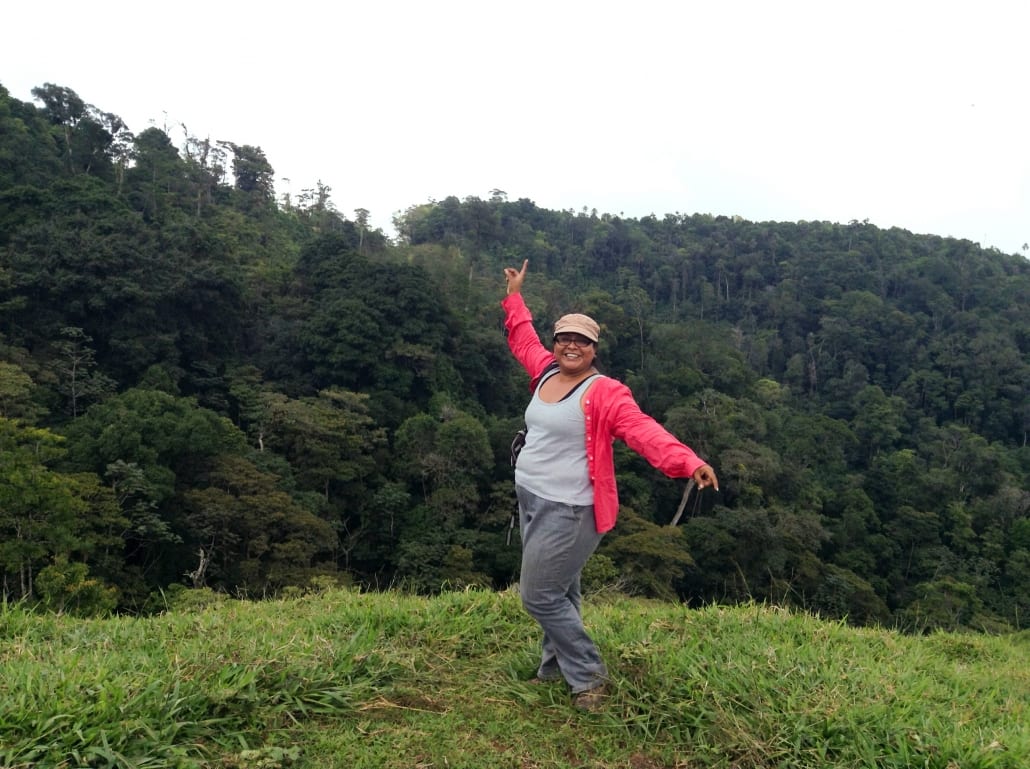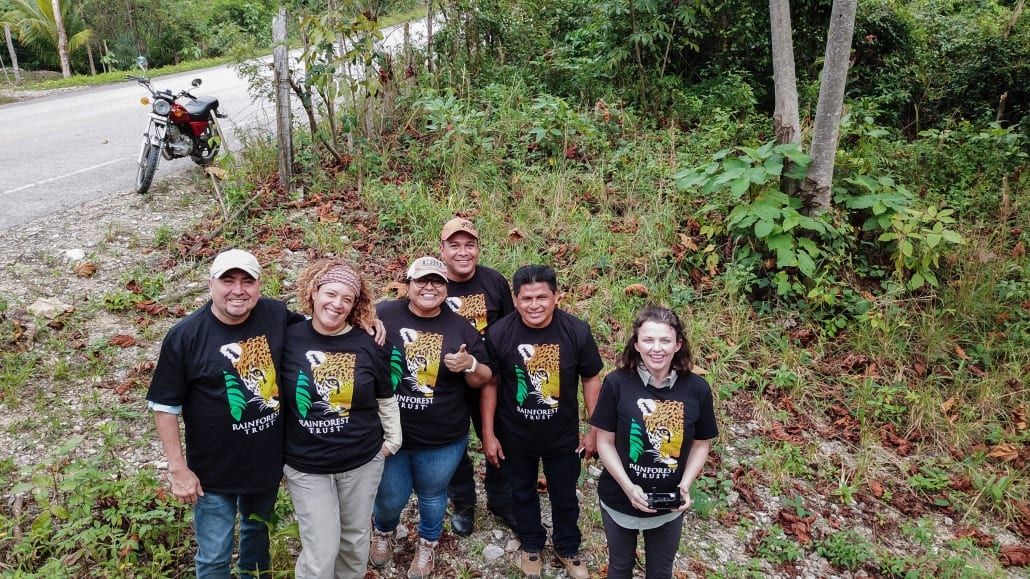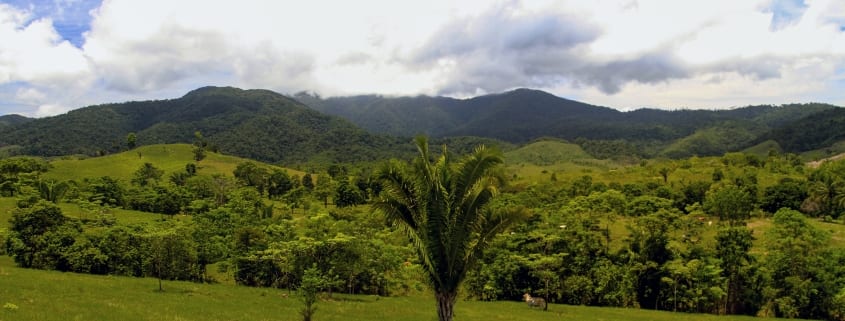Voices from the Rainforest: Ingrid Pelicó, Rainforest Trust Conservation Fellow
Rainforest Trust projects thrive thanks to the important conservation work of people on the ground. Our Voices from the Rainforest series brings you news from our projects in Latin America, Africa, Asia and the Pacific — from the perspectives of those working in and for the rainforests.

Paving the Way for Women in Conservation Management
Ingrid has a Masters in the Management of Protected Areas from the University of Madrid and was awarded a scholarship to study Forestry at the National University of Forestry Sciences in Honduras. She was also awarded a scholarship by the United States Forest Service to participate in the International Course on Management of Protected Areas in Fort Collins, Colorado. In 2000, she began work in protected areas as an environmental educator in communities surrounding Sierra del Lacondón National Park. She has also worked as an agroforestry technician and environmental educator to promote the declaration of the Sierra Caral Water and Forest Reserve. Currently, Ingrid spearheads initiatives to promote the declaration of the Sierra Santa Cruz protected area.

Ingrid Pelico. Photo by FUNDAECO.
Why did you become a conservationist?
I started studying forestry when I was 17 years old at University. It was not a common career for a young woman and especially not in my community, but through a scholarship I was able to study. During my student days, I fell more and more in love with what I was studying. The management of protected areas was always what I liked the most, although I never thought that I could do such an important job that could help not only my community, but the entire planet. Fortunately now I have the opportunity to help communities in the management of their resources and implementing projects for their development.
What inspires you most or makes you proud about being a Fellow?
What inspires me in being a Fellow are the skills that I will acquire from the other Fellows. I can share knowledge of my field experience, understand the culture of others, as well as create a network to continue important conservation work.
Tell us about a conservation challenge in your job.
Being a Fellow for me is knowing that there is someone who is interested in our work, and that we have the support of more people fighting for the same goal. Not only am I proud to be part of this project, I also feel the responsibility to keep working hard to conserve ecosystems where so many species live.
Tell us about a time that you felt you had made a difference as a conservationist.
In 2010, I refused to sign a contract approving a forest exploitation license to perform exploratory work by a mine, as it did not have the requirements established by law. I think there is a difference between wanting to do the right thing and doing it, and nobody should be afraid of losing a job or their lives because they did the right thing.
Tell us about a conservation challenge in your work.
Conservation itself is a challenge. It is hard to make others understand that the main benefits of natural resources are not necessarily economic and that ecosystem services can also sustain and strengthen our lives in many cases. There is no price that we can place on the loss of our biodiversity. It is important to make that click in the minds of local people to explain the current environmental crisis. Right now, my challenge is to declare a protected area with community support. I must explain to the community that the protected area will ensure their quality of life for a long time and that we can do a lot with and for our environment.
Tell us about a conservation success.
We have implemented reproductive health programs with the communities within and around our protected areas. These programs educate people about population growth and its impact on the environment. We have created the first REDD + project in the region with multiple local partners. Finally, we have declared more than three protected areas in the area and will soon declare the last remaining area, Sierra Santa Cruz.

Drone photo of Ingrid (third from left) with a group of Sierra Santa Cruz employees with Rainforest Trust Latin America Conservation Officer Stephanie Wester (right). Photo by Stephanie Wester, Rainforest Trust.
What has surprised you most in the field?
Being able to be in the field and appreciate the varied species we have is incredible. It often strikes me how sensitive they are, I cannot understand how so many people think our natural resources are inexhaustible. In a few more years, if deforestation continues, we will lose a great deal of our resources.
What is the most difficult part of your job?
Being a conservationist in this part of the world is always a risk. The lack of governance in our country has made conservation work even more challenging. Those of us who are dedicated to conservation have to contend with people whose primary interest is illegal exploitation of natural resources. It is even more difficult to be a female conservationist in a male-dominated environment. That is the challenge, to move forward and achieve what others have begun. We know that we are not alone and that although the struggle means risking our very lives, it is worth doing something to change things.
Why is conservation important?
Natural resources are important for human survival but there are people who believe that resources are infinite. Many community members are unaware of environmental processes and of how they work. People see water and believe that it will never run out, even if they cut down the trees of the whole basin. Environmental education is extremely important because through education we become aware of the risk that we run as a population if we continue to overexploit resources. It is important to conserve these ecosystems, but this will only be achieved if we are all aware of their importance and how they can directly and indirectly help us.
Header image: Sierra Santa Cruz. Photo by FUNDAECO.




